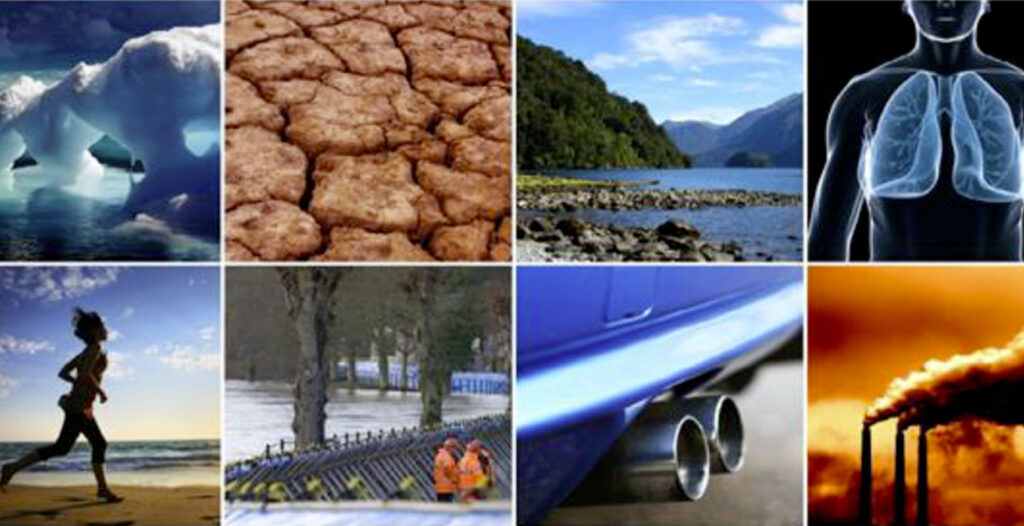The Clean Technology Centre along with Ricardo Energy & Environment were commissioned by the EPA in 2016 to update the inventories of Persistent Organic Pollutants (POPs) in Ireland 2006-2015. The project was led by Ricardo Energy & Environment.
The final report for the project was published in 2017 entitled: Inventories of Persistent Organic Pollutants (POPs) in Ireland 2006-2016 (ref SPCP-2016-42).
POPs are pollutants which due to their particular combination of physical and chemical properties, exhibit high toxicity, stability, bioaccumulation through the food web and persistence in the environment. POPs can be transported across international boundaries far from their sources and pose a risk of causing adverse effects to human health and the environment.
In response to the international community request to reduce and eliminate production, use and releases of these substances, two international legally binding instruments have been negotiated and concluded, the 1998 Protocol on Persistent Organic Pollutants and the Stockholm Convention. The European Community, together with the then Member States, signed both international agreements in 2004. The requirements of both the Protocol and the Convention have been implemented by Regulation (EC) No. 850/2004 on Persistent Organic Pollutants (referred to as “the POP Regulation”). The Persistent Organic Pollutant Regulations 2010 (S.I. No. 235 of 2010), enacting the POP Regulation into Irish law, provide the legal basis to ensure the effective implementation of Ireland’s obligations under the Stockholm Convention.
Ireland, as a party to the Convention on Long Range Transboundary Air Pollution (LRTAP Convention), the 1998 Protocol on Persistent Organic Pollutants, and the Stockholm Convention is obliged to comply with all requirements set in those international agreements. Over the years, the Protocol on POPs and the Stockholm Convention and, consequently, the POP Regulation have been amended several times to include new substances.
- The 1998 Protocol on POPs requires the compilation of an inventory of anthropogenic emissions to air. Estimates have to be reported annually by source following the sectoral split given by the EMEP/CORINAIR Atmospheric Emission Inventory Guidebook, according to the National Format for Reporting (NFR). The Protocol initially included dioxins/furans (PCDD/ PCDF), polycyclic aromatic hydrocarbons (PAHs) and hexachlorobenzene (HCB). In 2009 seven new substances were included. Under CLRTAP emissions of polychlorinated biphenyls (PCBs) and polychlorinated naphthalene (PCNs) have also to be reported.
- Currently 26 substances are listed under the Stockholm Convention, after the inclusion in 2015 of hexachlorobutadiene, pentachlorophenol and its salts and esters, and polychlorinated naphthalenes (PCNs) within in the relevant annexes to the Convention.
- Parties to the Stockholm Convention are required to maintain source multi-media inventories covering air, water and land but also products and residues in the case of unintentionally produced POPs, listed in Annex C of the Convention.
- Under Article 6 (1) of EC Regulation No. 850/2004, inventories of POPs emissions to air, water and land should include all POPs listed in the Stockholm Convention, including PCDD/ PCDF, HCB, and PCBs, and additionally PAHs.
As Ireland’s designated inventory agency responsible for compiling and reporting national inventories to the CLRTAP and the competent authority for implementing EC POPs Regulation No. 850/2004, the EPA is required to compile multi-media emission inventories for POPs.
The first multi-media inventory included releases to air, land and water for the period 1990 and 1995-2006 for PCDD/PCDF, PCBs, HCB, and air emissions for four PAHs: benzo[a]pyrene, benzo[b]fluoranthene, benzo[k]fluoranthene and indeno[1,2,3-cd]pyrene. Since the last comprehensive study was completed in 2008, an update of the POPs inventories is required to comply with the new obligations related to the listing of new substances in the Stockholm Convention, the Protocol and the EU POPs Regulation.

